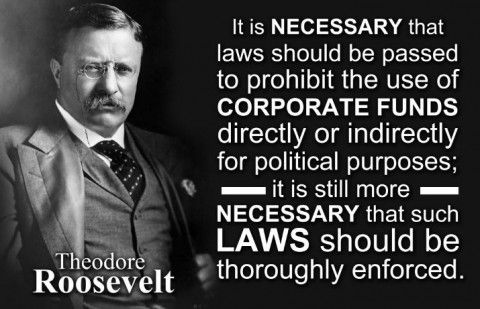The best parts of the For The People Act are found mainly in the section called the DISCLOSE Act, which plugs various holes in our campaign finance reform laws. In particular, the act attempts to roll back the pernicious effects of the Supreme Court’s Citizens United decision and the effects of undisclosed dark money in political campaigns by requiring any entity spending more than $10,000 per election to disclose all donors who gave above $1,000. Corporate political contributions outside of registered PACs would have to be approved by shareholders. Candidates would have to immediately disclose any contribution above $5,000 received in the 20-days before an election. It also controls coordination between super-PACs and candidates by, for example, providing that if the staff of a Super-PAC has any actual tie to a candidate, it will be considered a coordinated expenditure and thus subject to the limits applicable to the candidate’s committee. Finally, HR 1 would change the structure of the Federal Election Commission to reduce the Commission from six to five members but provide that no more than two can be from one party. This practically means one must be an independent. Members would be picked from a group vetted by a blue-ribbon panel. To control any bias in their actions, the act provides for stronger judicial review of FEC enforcement decisions, including decisions to dismiss a complaint without investigation.
It also should be noted that the act would more closely regulate websites like this one. Specifically, if a website mentioned a federal candidate within 20 days of the election, it would be required to fully disclose its ownership. To comply with this requirement, I have expanded the disclosure about the ownership of the site in the “About – The Editor” page of this side to include my address.
HR 1 also controls foreign influence in our elections by authorizing new civil and criminal penalties for violations of the Foreign Agent Registration Act. It would be clear that foreign agent includes an agent for a foreign business. It also requires voting machine manufacturers be owned or controlled by U.S. citizens and report cyber-security incidents.
Ethical guidelines for members of Congress and the executive branch would also be strengthened under the act. Government officials would be required to refrain from participating in matters in which a prior employer had an interest. It reduces the revolving door between business and government by increasing the cooling-off period before a former official can lobby his previous agency from one to two years. It also outlaws a disturbing practice of private sector bonuses to employees who join the government, an especially common practice in the financial services industry. Finally, congressmembers will be required to reimburse the Treasury for any awards or settlements for employment discrimination suits against them.
Even the controversial voter registration and voter integrity sections of the bill contain some important protections. First, it requires states to share voter registration information to reduce duplicate cross- state registrations. A voluntary system for this already exists called the Electronic Registration Information Center. It also prohibits the deceptive practices regarding the time, place, and manner of voting. Duplicate paper ballots and risk-limiting audits of election results would be used as a check against the reliability of electronic machines. A risk-limiting audit is a process whereby officials manually recount enough paper ballots to ensure the electronic tally is correct. Finally, the bill requires an early voting period for two weeks prior to the general election and would make Election Day itself a national holiday, thus encouraging citizens to become involved in the election process other than simply by voting.
These changes would help realize Theodore Roosevelt’s goal of reducing the influence of special interest money in our elections and making them more fair and accurate. However, the act could have been much better. In the next post, I will discuss the bad of the Act; that is, the provisions that would damage the election process but could be reformed or improved to still achieve it.


One thought on “For the People or the Elite? – The Good”